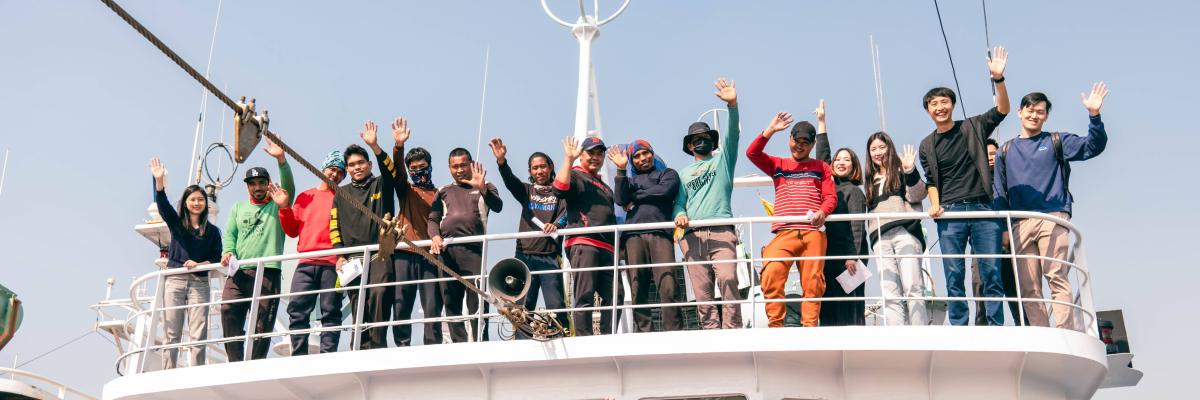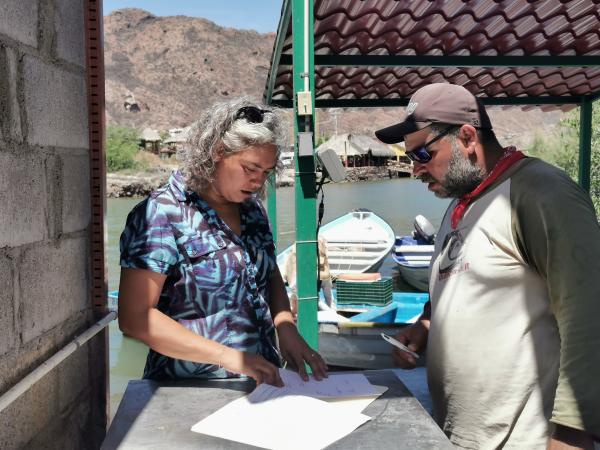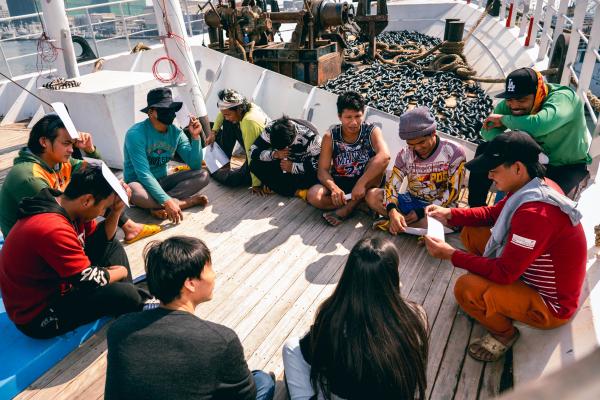
The FisheryProgress Human Rights and Social Responsibility (HRSR) Policy, first introduced in 2021, has recently been updated to Version 2.0. This latest version reflects extensive feedback from key Fishery Improvement Project (FIP) stakeholders, including buyers, NGOs, and fishers themselves. A central goal of the revision was to ease common implementation burdens, making the Policy more applicable to the diverse contexts in which FIPs operate, as well as to better align the Policy’s requirements with companies’ human rights due diligence efforts.
From Compliance to Continuous Improvement
Rather than treating social responsibility as a checklist of boxes to tick, the new Policy emphasizes continuous improvement—supporting FIPs to make steady, meaningful improvements over time. Revised with the various FIP shapes and sizes in mind, this evolution makes the Policy more practical, flexible, and aligned with on-the-water realities while holding FIPs accountable for progress and transparency. In support of this shift, there is now a new option to report on work in progress for certain policy requirements, allowing for greater accountability that is grounded in context and recognizes the realities of ongoing development. The approach moves toward a more meaningful cycle of assessment, implementation and improvement, and reassessment, reflecting a deeper commitment to continuous learning rather than one-time compliance.

“What we’re learning is that social responsibility can’t live on the margins of a FIP—it has to be part of how a fishery improves,” said Jamie Padilla, Director of Strategic Engagement at FishChoice. “These updates are about weaving that thread in, giving FIPs space to show work in motion and to be transparent about what’s hard. We also recognize that for this to be meaningful, those efforts must be visible and valued within the supply chain. Moving forward, we’re working with stakeholders to develop clearer signals that make social progress easier to demonstrate and easier to recognize—bringing social reporting more in line with how environmental improvement is already tracked.”
More Practical, Streamlined Reporting
Recent updates to the reporting process offer greater flexibility and ease for FIPs, and reporting has been streamlined to minimize redundancy and enhance user-friendliness. These include more flexible timelines for initial reporting, reduced burdens for reassessment, and the removal of penalties for not improving risk scores, acknowledging that progress can take time. Additionally, FIPs engaged in an SRA workplan now have the option to opt out of requirements 1.3 and 1.4, which can often be duplicative. FIPs using the SRA tool can centralize their reporting through workplans, supported by new templates and clearer language that make compliance more straightforward.
The Policy also introduces greater flexibility to accommodate the varying contexts in which FIPs operate. It acknowledges the challenges of frequent reassessments and the costs of third-party evaluations, reducing some of these burdens without compromising accountability.

New Approach to Grievance Mechanisms
One of the most significant changes is how the Policy approaches grievance mechanisms – the tools fishers have to raise concerns and report abuses. Instead of requiring every FIP to have a grievance mechanism from the start, the focus is now on transparency: What mechanisms, systems, or processes are available to fishers? And how well do they work? Do fishers trust them? Where are the gaps? To help answer these questions, there is now a new assessment tool that all FIPs must use, unless they’ve already completed a Social Responsibility Assessment (SRA).
“I’m most excited about the new questionnaire we’ve developed for FIPs to assess the availability and effectiveness of grievance systems in the FIP,” said Melissa Luna, Social Responsibility Program Manager at FishChoice. “Importantly, this questionnaire cannot be filled out meaningfully without engaging directly with fishers – this was intentional. We wanted a way to highlight fishers' voices and their lived experiences in FIP reporting.”
The ultimate goal is that FIPs will more readily see the gaps and take the necessary steps to build or modify systems that result in real change for fishers in lieu of simply being a checkbox on their FisheryProgress profile. These changes are aligned with a refreshed FisheryProgress reporting platform, further improving the overall user experience.
Ultimately, the updated HRSR Policy aims to build a stronger foundation for ethical and socially responsible fisheries. By prioritizing real progress over formal compliance and equipping FIPs with the tools and flexibility they need, the Policy fosters long-term improvements that benefit workers, communities, and the environment.
Note: FIP social reporting was paused after the launch of the new FisheryProgress website in June 2025, but has resumed as of October 20, 2025.
Photo Credits: Main Image: One-Forty; 1st Inner Image: COBI; Second Inner Image: One-Forty.